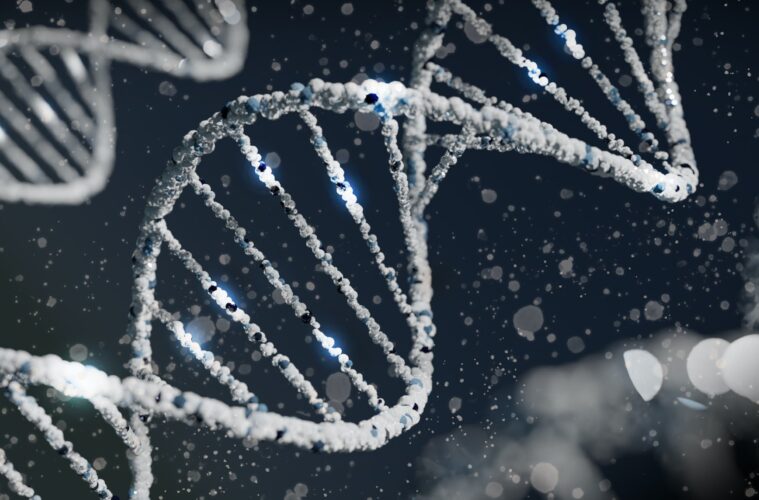There’s increasing student interest in biotechnology or creating different products from living organisms or biological systems. Biotechnology is rapidly evolving, and one of its highlights is gene or DNA synthesis, which naturally or artificially creates deoxyribonucleic acid or DNA molecules. With gene synthesis, scientists can create variable genes, boost protein function, and test various species of a particular gene.
In this article, you can learn more about custom DNA synthesis, including its benefits, applications, and more.
What Is Custom Synthesis Of DNA?
Custom DNA synthesis is a reliable and cost-effective way to obtain custom DNA molecules with 100% sequence accuracy. Biotechnology companies offer custom synthesis services, innovating, manufacturing, and supplying advanced polyethylene glycol (PEG) and biopolymer products. These DNA-derived products play a crucial role in discovering new drugs and treatments to fight disease and improve patient prognosis.
How Artificial DNA Synthesis Works
Here are the steps involved in an artificial DNA synthesis project:
Determine Project Goals
At this stage, proper communication and timeline planning are important considerations. Minimise revisions by identifying the scope of your project. Efficiency and speed are crucial. Therefore, prioritising DNA products in a particular synthetic order or utilising a mix of molecular and synthetic techniques to create artificial DNA is essential.
Design The Sequence
When designing the sequence, it’s essential to conduct a literature survey to uncover issues. The next steps involve analyzing the coding DNA sequence for critical elements, which usually complicates cloning.
Synthesise And Assemble Oligos
Synthesising and assembling oligonucleotides are automated. These short single RNA or DNA strands are the beginning of synthetic and molecular biology applications. Advanced technologies make oligo processes 100% efficient.
Applications Of Custom DNA Synthesis
Below are the applications of custom DNA synthesis:
Custom DNA Synthesis For Gene Therapy
Recent research shows that PEGs can optimise gene editing and delivery, as seen in CRISPR gene therapy. Systemic delivery of CRISPR-mediated gene therapies is challenging for Duchenne muscular dystrophy and other neuromuscular disorders. But the University of California at Los Angeles researchers were able to create biocompatible linear- and multi-arm PEG polyrotaxane nanocarriers capable of delivering large plasmid DNA to muscle cells.
The plasmid DNA delivery system involves optimising polyrotaxane by adding a disulfide-responsive linker. Hence, polyrotaxane hastens uptake and transfection efficiency in dystrophic muscle cells. Transfection means deliberately inserting nucleic acid (RNA or DNA) into a cell. Now, many research companies can better design genes for their projects using PEG-based nanocarriers.
Genetic Testing And Engineering
Genetic engineering involves manipulating an organism’s DNA or RNA by modifying specific genes. Modern molecular biology allows scientists to rearrange, eliminate, or introduce genes. Food packages with genetically modified organisms (GMO labels) have modified genes. For example, food engineers genetically modify corn genes to become bug-resistant.
Custom DNA synthesis is used in genetic testing and engineering. Gene synthesis is a most-sought mechanism in genetic engineering that researchers perform. Researchers depend on DNA synthesis because genetic engineering has many applications in various scientific fields. With custom DNA synthesis, scientists can create new cells and related therapies to help improve patient care or food safety.
Forensic Research
Gone are the days when crimes were left unsolved because of a lack of substantial evidence. With genetic analysis and synthesis, it’s now possible to identify the perpetrators and study their lineage, traits, and reasons for committing a crime.
Custom gene synthesis can help forensic investigators in DNA profiling. With DNA profiles, authorities can determine parentage and identify criminals. Everyone has a unique DNA profile, which helps in resolving crimes. Forensic scientists can use custom DNA for forensic studies, helping uncover criminal traits and potential evidence at a crime scene.
Next-Generation Sequencing
Scientists conduct custom DNA synthesis for next-generation sequencing. This massively parallel sequencing technology helps scientists determine the order of RNA and DNA. Next-generation sequencing is very fast and scalable, with ultra-high output. Custom DNA synthesis offers cloning, verification, and chemical synthesis of any sequence for various projects.
With the custom synthesis of DNA and next-generation sequencing, researchers can quickly analyze results and decide on the modifications they must deploy for a successful project. Whether they’re trying to discover a new treatment, increase food supply, improve skincare, or catch criminals, this latest technology is very promising.
Conclusion
Custom DNA synthesis involves creating unique nucleotides, primarily for clinical research purposes. Current technologies allow biotechnology companies to optimise gene synthesis, providing 100% accuracy and efficiency at the fastest speed possible.
Gene synthesis services maximise DNA expression, analysis, and synthesis to obtain quick, accurate results for clinical studies, forensic investigation, gene therapy, and other relevant applications.





